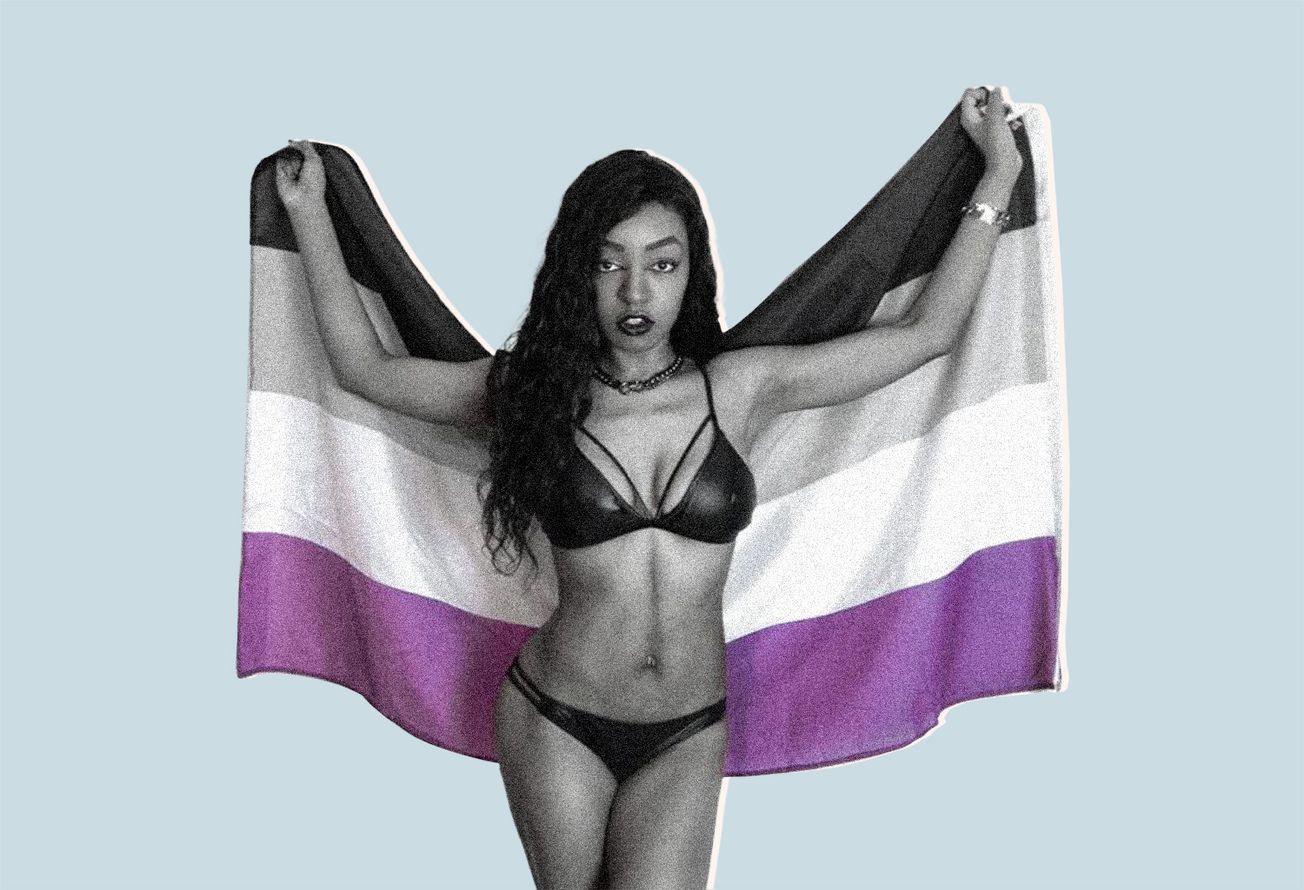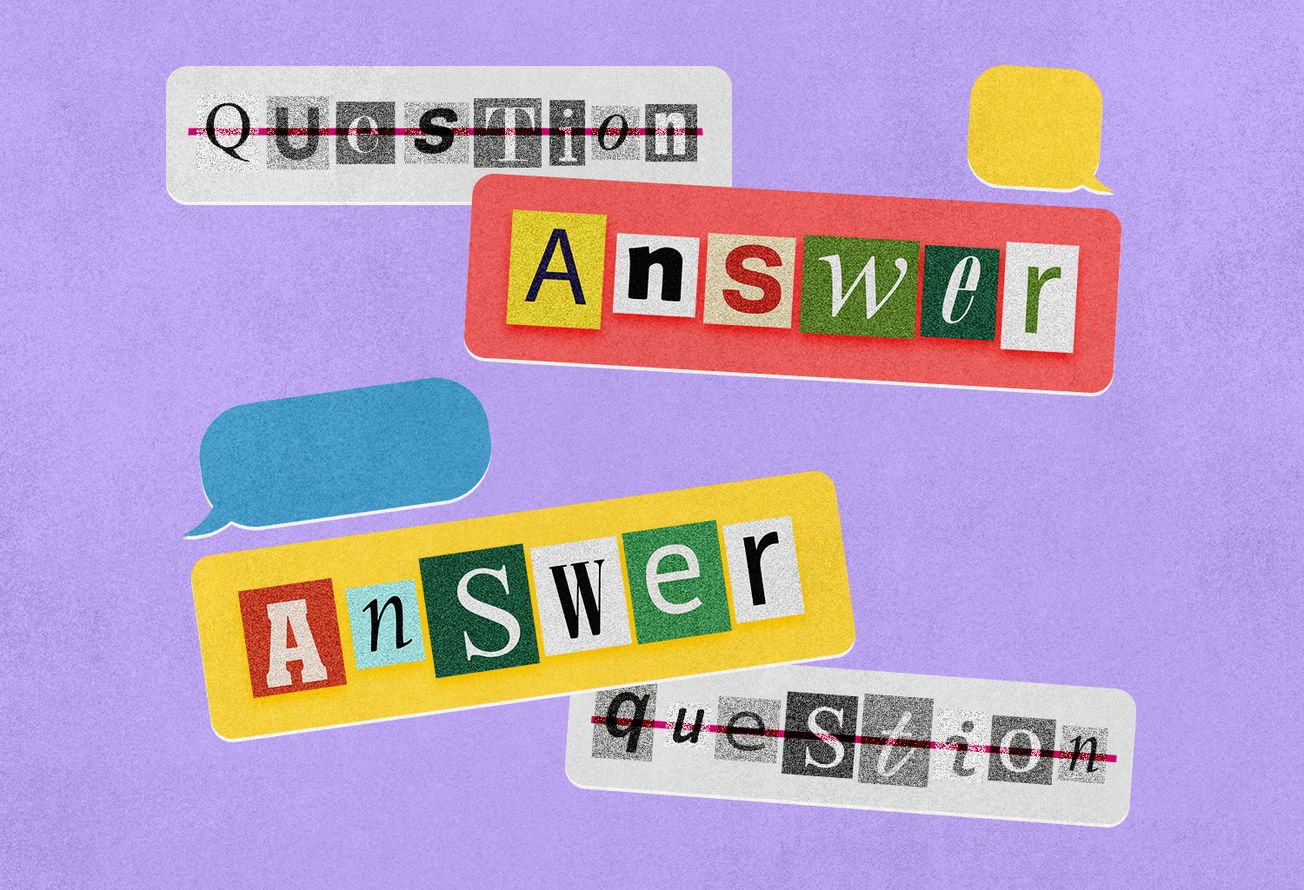Image: Black asexual activist and lingerie model Yasmin Benoit (Image Courtesy: Instagram/Yasmin Benoit)
I came out as asexual when I was fifteen. Five years later, I was plagued with doubt about whether I fit the label. The confusion stems from the fact that India’s culture of sexual repression creates discomfort around sex, so how does someone determine whether one is really asexual or if the aversion to sex is nothing but sexual repression? In India, the idea of sex and sexuality as taboo is drilled into people early on and the heaviest burden falls on girls and women. From childhood onwards, girls and women are conditioned to believe that their bodies are inherently tied to sex, and that their sexuality is always something to be repressed and hidden away, not celebrated. In schools, young girls are chastised for the lengths of their skirts or for wearing lip balm, often even accused of dressing up “provocatively” to attract boys. At an age where they may not even understand the implications, they are judged and shamed for the way they dress. In popular media, girls and women are either villainised for having active dating and sex lives (Veronica in Cocktail) or blatantly objectified and treated as sex symbols who lack depth and respectability (as seen with Sunny Leone). In essence, when women take control of their own romantic and sexual narrative, they are labelled as ‘bad’ and made to feel guilty. India’s sexual repression, thus, is not about attaching taboo to sex but about stripping women of their agency. It discourages women from seeking out pleasure which is considered inherently shameful and “too Western”. When men seek pleasure, objectify women, or even sexual harass or assault them, it is either “inevitable” or, at best, “a youthful mistake” and has nothing to do with their social standing or character. The white coloniser’s standards of beauty combined with casteist colourism have taken deep roots. Women especially are expected to be light skinned with perfectly shaved legs and must adhere to body types deemed “sexy”. Sex appeal for men can also be linked to their personality or social status—not so for women.
Any public display of sexual connection, including kissing in public spaces, is frowned upon, sometimes even met with violence. Art that is in any way erotic is quick to be charged with obscenity. F N Souza's studio was raided in search for pornographic material in 1949. Later in the seventies, during the emergency when censorship was peaking, author Ruskin Bond almost ended up in jail for his story The Sensualist about a sex addict. Things didn’t get that much better later either. In 2009, the popular pornographic cartoon “Savita Bhabhi” depicting the sexual exploits of an Indian housewife was taken down by the Indian government. In 2016, the CBFC banned the film Lipstick Under My Burkha for being too “lady-oriented” and for containing “abusive words” and “audio-pornography”. Sex is talked about in hushed tones—as something intensely secret and imbued with shame. Inevitably then, generation after generation is afraid to freely talk about and seek sexual pleasure without feeling any guilt. It’s no surprise that anxiety related to sex, enhanced by body image and self-esteem issues, is rampant. And as if none of this was quite enough, sex is also deeply tied to familial honour and used as a justification for murder.
Western media is notorious for depicting Asians, especially men, as desexualised. Characters like Raj Koothrappali from The Big Bang Theory are depicted as socially awkward, repressed, and constantly unable to find romantic or sexual relationships. Unfortunately for Asian asexual people like myself, this leads to increased confusion surrounding our own sexuality. There is already a lot of invalidation and dismissal of asexuality as a state of temporary sexual repression. The assumption that one day you will “meet the right person” and begin to enjoy sex—well, we know this is not necessarily true. Inversely, when a person’s asexuality is recognised, they are expected to be uptight and anti-sex.
Black asexual activist and lingerie model Yasmin Benoit has often talked about how her job confuses people:
“People ask how I can be asexual, aromantic and a lingerie model. You [can] look ‘sexy’ and be asexual; you can wear what you want, move how you want, work with who you want without it impacting your sexuality.”
Understanding asexual people as normal people who talk about and sometimes even enjoy sex is only the beginning of breaking the stereotypes around the community. Ultimately, the view of asexual people as prudish not only treats the asexual experience as monolithic, but also paints them as invariably rigid and conservative. Asexuality can, in fact, coexist with sex positivity. Asexual people, without feeling the need to participate in sexual activities, can still understand others' need for sex, support sex workers' rights, and stand by non-binary folx and women in their journey to sexual liberation. They can model lingerie, masturbate, and be in healthy relationships.
I'm not necessarily averse to touch. I've fantasized about making out with several crushes, enjoyed sexual content in fanfiction, and am always up for hugs or holding hands. Sex as a concept doesn't faze me to a certain extent and it is something I can easily talk and joke about. Yet, visual representations of sexual activity, such as erotic scenes on screen, or detailed discussions surrounding the subject make me feel intense discomfort. I can cope with the idea of sex as long as it is somewhat distant and removed from reality, but physical reminders of its actuality are jarring. I recognize sex as a need for many, but in my daily life or when I’m attracted to someone, sex is not something that crosses my mind naturally. Instead, it is something I have to force myself to think about and I often agonize over if I'll ever enjoy it. After coming out as asexual, I often wondered if my sexuality could have been different had I grown up in a different environment.
The lack of sexual attraction can be an isolating experience, especially in one's adolescent years. Throughout the world, asexual people are made to feel like there is something fundamentally wrong with them for not enjoying something they are “supposed to” enjoy. Even in India, while the very concept of sexual pleasure is swept under the rug, heterosexual sex and procreation are treated as an obsessive compulsion. The cultural significance attached to sexual consummation on the night of the wedding (suhaag raat) and the subsequent familial pressure on married couples to have children impose sex as an imperative, making it harder for people to confidently identify as asexual.
The confusion and conflict, the “Am I? Am I not?” that surround asexuality eventually leads panromantic asexual people like me to take refuge under the umbrella term “queer”. While the debate around the usage of this reclaimed slur may be an ongoing one, it is still the only label that I have been able to find refuge in over the years to feel confident and comfortable. The term “queer” gives me the freedom to not have to always talk about the conflicted feelings that characterize my asexuality, providing me with the space I need to figure out what asexuality means to me.






